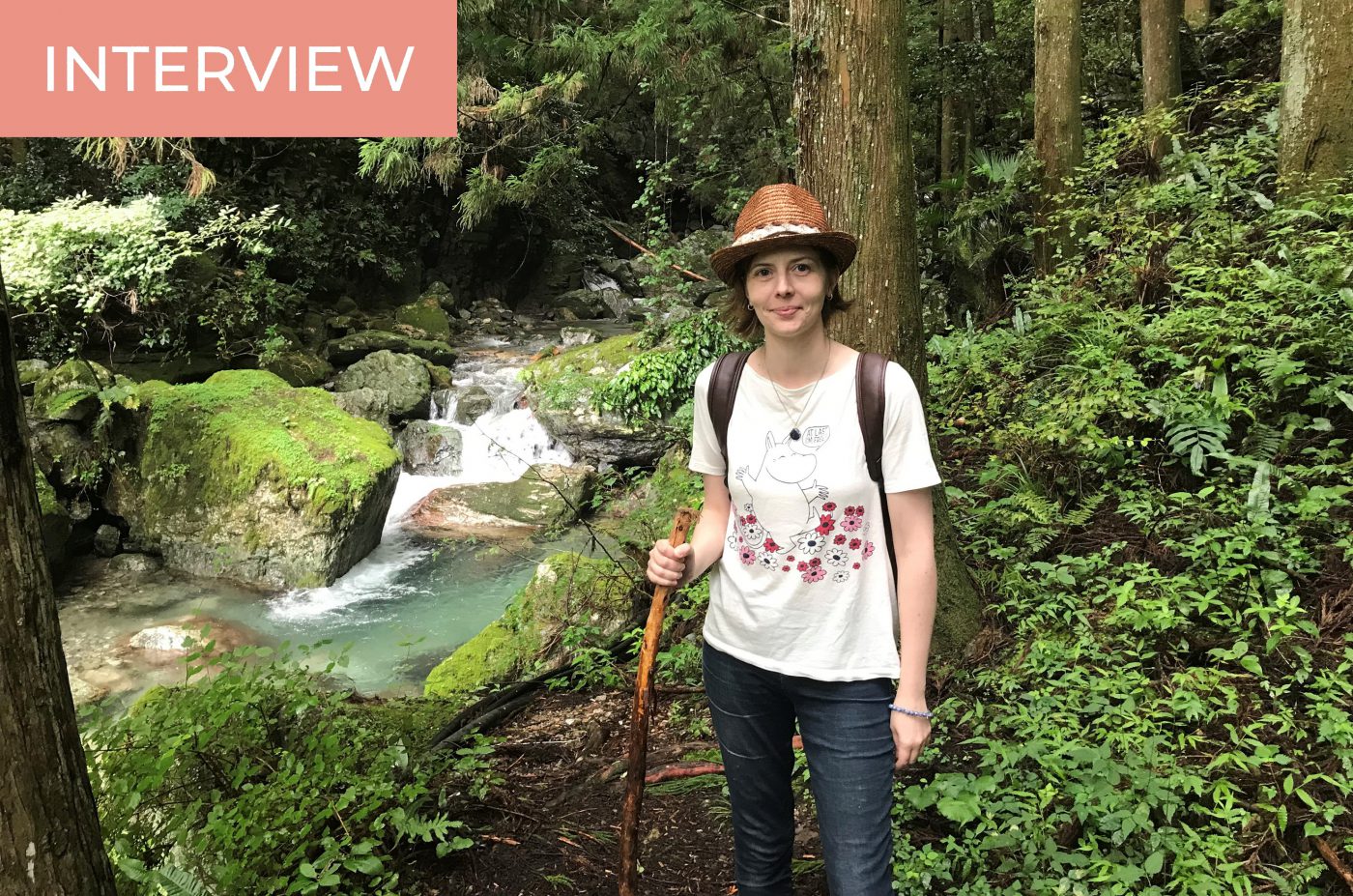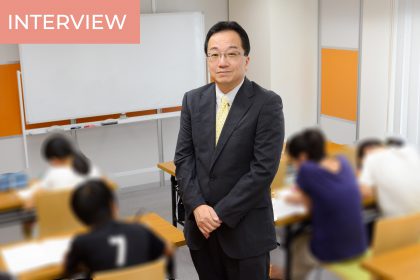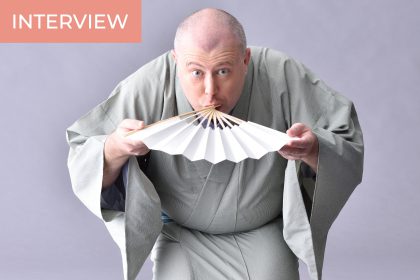I’ve had the pleasure of collaborating with Amélie Geeraert, Kokoro Media editor-in-chief, ever since we started producing articles and building brands for combrains, the parent company of Kokoro Media, in 2018. Over the years, Amélie’s passion for Japan has inspired her to create some amazing articles including fascinating interviews with artists, entrepreneurs, and philanthropists from all over the country. Now it’s time to turn the spotlight on her. Read on to learn why Amélie moved to Japan and what valuable life lessons she’s learned through living and working here.
Moving Abroad and Working in Japan
How did you come to live in Japan?
When I was a child in France, Japanese animation was always on television, so Japanese pop culture was natural for me and many people in my generation. When I was in middle school I consciously got interested in Japan through video games—especially Japanese role-playing games, which had loads of typical Japanese design and cultural elements. I also read manga [Japanese comics], and that’s when I started noticing all the cultural differences between my life and life in Japan.
When I was in high school, I decided to learn Japanese, just for fun. I didn’t really think much about it at the time. When I was in university, back in 2005, I had the opportunity to go to Japan as an exchange student. One of my teachers had heard that I could speak a little Japanese, and there were very few students who could do so. We had some Japanese students come to the university, but we were unable to send anyone to Japan. So, my teacher asked me if I would be interested in going there.
After eight or nine months, I realized that one year in Japan would not be enough.
I ended up going to Fukuoka for just under a year. I really enjoyed my time there, and when I came back to France, I was a bit depressed because I would have liked to have stayed in Japan longer. So, it always was in the back of my mind to go to Japan again someday, maybe for one or two years. I made it back to Japan in 2011 with a working holiday visa. I intended to work part time and travel as much as I could. However, after eight or nine months, I realized that one year in Japan would not be enough. So, I got a work visa and continued working for different companies in the service industry until I found the opportunity to work for my current employer.
How did you become editor-in-chief for Kokoro Media?
I started as a writer when the brand was known as Tadaima Japan. However, I also worked on projects for the company behind the website, which is doing a lot of rural revitalization work. When we rebranded Tadaima Japan as Kokoro Media in 2020, I was promoted to editor-in-chief.
Is this something that you had been actively pursuing?
I was asked to take on this role. However, I had been suggesting that the website should be renewed, at least visually, as I’m sure you remember. When I brought this up to my superiors, they decided to go even further, changing the website identity entirely and creating something that could add more value when compared to our competitors. This is when I was asked to take on the editor-in-chief role.
I’m kind of an introvert, so I’m very bad at selling myself or saying things like “I want to do this” or “I will lead this project.” I’m more of a person who waits for opportunities to appear. I’m not very proactive, and I realize that’s one of my weaknesses.
Reading Leads to Writing
Have you always been into writing? What does writing mean to you?
To understand my relationship with writing, you should know more about my relationship with reading. I started reading very early compared to most people. In France, kids go to elementary school and start learning how to read from age six. According to my parents, when I was very little, I would keep asking them, “What’s written here?” and “What’s written there?” while looking at magazines and so on. It was probably a little annoying [laughs].
Upon realizing how much I wanted to read, my grandfather decided that he would teach me how to read at the age of four. After coming home from kindergarten, he would teach me a little bit every day. I remember that, at the time, I didn’t really enjoy having to do more work after school. But after about a year, I was able to read. That’s when the world really expanded before my eyes. My mom gave me her collection of French and Belgian comic books—Tintin, for example. I would also read magazines and books about space, dinosaurs, and other typical things that children like.
Some people hear a voice talking to them in their heads. I sometimes see words instead.
How did this lead to your passion for writing?
I think my view of the written word is a bit different from most people. Writing comes naturally. When I think of things, I visualize them as written. Some people hear a voice talking to them in their heads. I sometimes see words instead.
So, instead of an inner voice, do you have an inner writer?
I have both at the same time. I remember writing my first story in elementary school. It was probably about knights storming a castle, or something like that. I even made my own magazine. I enjoyed putting the articles and illustrations in place, just as I would see in real magazines. This was strictly for my own entertainment. I didn’t show it to any friends.
In middle school I started writing short stories. My best friends and I would write side stories to the manga we loved. These days, I guess you would call what we were doing fan fiction. We just enjoyed writing fiction and exchanging our stories with each other.
Consuming and Creating Content in Multiple Languages
I’ve always been impressed with your ability to read and write in French, English, and Japanese. What tips do you have for reading and writing in our second languages?
It’s best if you can find ways to practice your target language as soon as possible. Of course, in the beginning you’re going to have a limited vocabulary and poor grammar, so practice will be difficult. However, as soon as you can hold a simple conversation, find someone to speak with. I recommend this approach because you only really integrate and remember what you use in real life. This is much more effective than just trying to memorize words on a list.
The same goes for writing. However, it’s better if you can read a lot first. I believe you can learn to write by reading. It’s only when I started to read a lot in English that my English writing got better. I do still make a lot of mistakes, though. Read different things from different authors and find a style that is suitable for you. It’s the same for Japanese. I mostly write business emails, and to do that I read a lot of my colleagues emails or how-to articles online. In the beginning, I would have some colleagues read my emails and point out the huge mistakes I made so I could improve. Practicing is so important. It’s best if you too can have someone read what you write and point out your mistakes.
Creating Kokoro Media Content
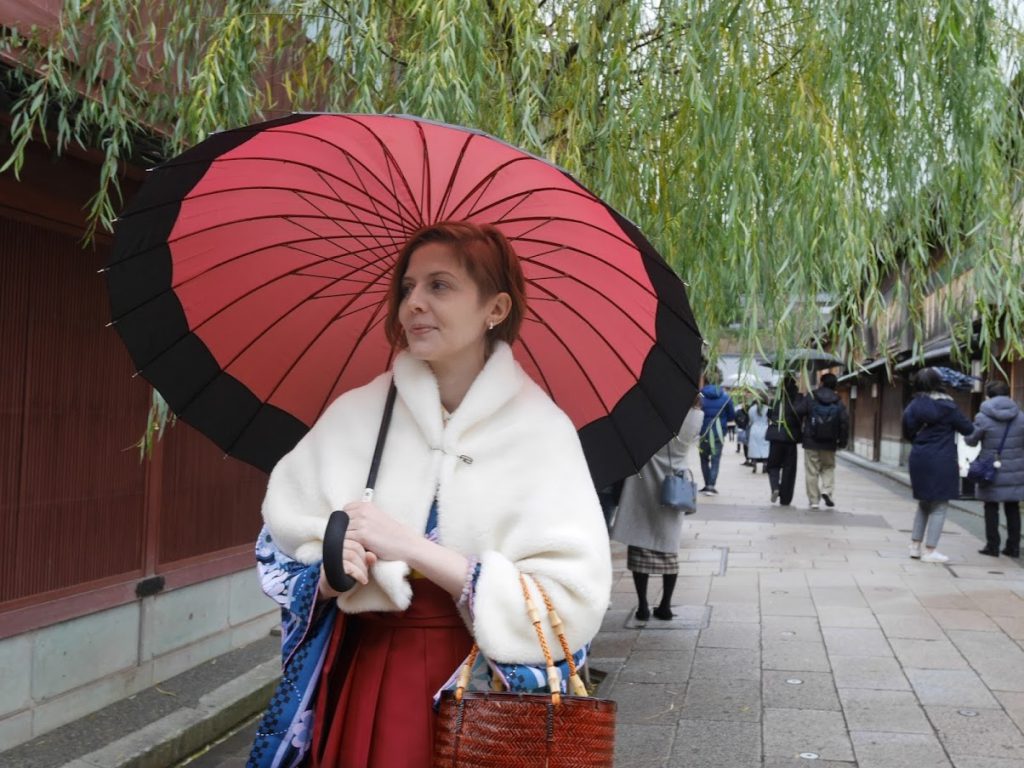
What aspects of the Kokoro Media website are you passionate about and what message do you want to convey to our readers?
There are two main things that I’m trying to do with the website. When I interviewed Michiru Hasegawa, she said that she wanted to be as truthful as possible. Speaking with her made me realize that I was also trying to do the same. Most of the time, I’m doing interviews in Japanese and then I have to translate them into English. It’s easy for the meaning to change during translation, so I have to be very careful that I’m really saying what the interview subject meant. That’s why I always have the interview subject review their article before I publish it online. Actually, I’ve learned that many journalists don’t do that. These days especially, with all of the fake news out there, it’s critical to be as truthful as possible.
The second thing I’m trying to do with the website is something that I didn’t foresee when we started. I initially thought we’d be interviewing a lot of people involved with traditional Japanese topics. However, most of the people I’ve interviewed are related to problems that Japan is dealing with. For example, a lot of people are trying to do something about sustainability, population decline, or diversity. Based on that, I not only want to convey the spirit of Japanese people, but I also want to inspire people to import these ideas into their own countries, businesses, or projects. When I do these interviews, I feel like my field of vision is widening. I see things differently each time I talk to someone, and it would be really nice if our readers could experience the same thing.
Integrating into Japanese Society
You’ve been in Japan for quite some time now. What motivates you to keep living and working here?
I’ve been here for a little bit less than 10 years so, in a way, Japan has become home—maybe even more of a home than France. Whenever I go back to France, it kind of feels like a foreign country because the France I know is the France from 10 years ago. Everything is different now. On the other hand, Japan has become more familiar. Also I believe that, career wise, I have more interesting opportunities here than I would have if I went back to France.
Why do you feel that you fit in so well here?
Maybe that’s also related to the fact that I’m introverted. As far as I can remember, I’ve always been quiet and I’m always worried about offending someone’s sensibilities. Even though I make mistakes, I try to be careful about what I say. I try not to be too frank, and I avoid conflict. Those are some common points that I share with many Japanese people. That may have been an advantage when it comes to integrating here. Of course, Japanese culture and business culture is very complicated. There are a lot of rules, and I do make a lot of mistakes. But I’ve always had an interest in intercultural communication, so I read a lot about that before I came to live in Japan. That probably helped me understand how everything works here, even though it’s hard for me to adapt to some concepts.
All of the cultural differences are actually fun to experience if you can see them in the right light.
I can certainly relate to that. However, Japan is a place where, no matter how well we speak the language, we still stand out by our very existence—our physical appearance, the way our names are written, and so on. Would you say that, overall, you fit in more than you stand out?
I’m certainly not Japanese. I’m completely French. I know my way of thinking is mostly French, but I was able to integrate here. I feel like Japan is home but, of course, I don’t pretend that I’m Japanese or that I can become Japanese. I still feel culturally different, and I know I stand out.
What are the most rewarding aspects and the most challenging aspects of living and working in Japan?
The most rewarding aspect is being able to directly experience the traditional culture that made me so interested in the country all those years ago. Enjoying the food and the festivals is rewarding. Also, all of the cultural differences are actually fun to experience if you can see them in the right light.
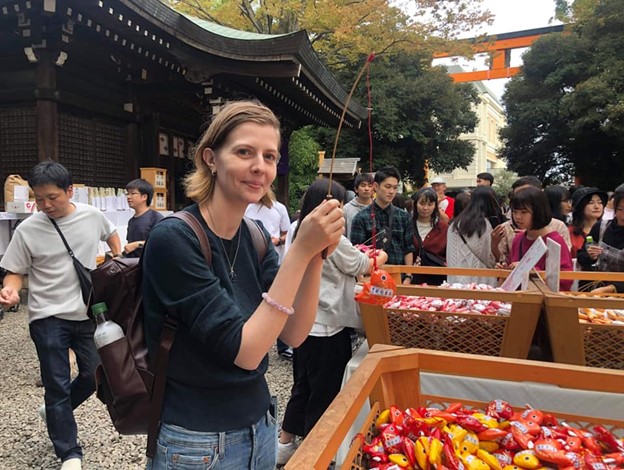
The challenge of living here is what we were just talking about—the fact that we stand out at all times. When you don’t look like a Japanese person—even if you’ve been in Japan for over 50 years—in the eyes of the people around you, you’re a foreigner and you will always be a foreigner. I don’t know if this is going to change in the future but, for now, that’s how it is.
That leads to my biggest challenge, which is facing discrimination, especially when I had to find a new place to live. I call this a challenge but, in a way, it’s also a valuable experience. This is because I’m a white girl from France. Before coming to Japan, I never had to face discrimination of any kind—I was a privileged person. I guess you could argue that because I’m a woman I had to deal with a few problems, but I never had to deal with discrimination based on nationality.
Coming to Japan taught me how to see things differently, especially when facing housing discrimination. When I would share this problem with Japanese people, many would try to make excuses for landlords, saying things like, “Maybe they had trouble with other foreigners,” or “Maybe they are just afraid that you can’t speak Japanese,” and so on. That can get a little tiring. However, that made me realize how minorities in my own country feel when they are not being heard. Now, when I have a friend from a minority group who has a problem, I just shut up and listen to what he or she has to say.
As with any other goal, work on your journey to Japan a little bit every day.
Career Advice and Final Thoughts
What advice do you have for those who want to emulate your experience in Japan?
I’m not sure my career path is really something to emulate because there’s not a real logic to it. But if you want to come to Japan, the first thing you have to do is believe in your dream. Don’t let other people convince you that it’s impossible. As with any other goal, work on your journey to Japan a little bit every day. Maybe you can start taking Japanese classes. If you don’t have money to take classes, then just buy a book and try to learn on your own. You’re going to have to save money. Some will be able to save more than others—just do what you can. Even $10 a month is still better than nothing, and it will get you that much closer to achieving your dream.
You should also extend your network and read about Japanese culture. Do anything that makes you feel like you’re moving toward your goal, and do it constantly. It might take a lot of time but eventually, you’ll get there.
Well said. As we wrap up, do you have any final thoughts for our readers?
If you want to work in Japan, it’s important to develop unique skills and knowledge that you can bring to the table. If you’re going to try to find a job in Japan, you have to show Japanese companies that you can offer something beyond the typical Japanese candidate. If not, they’re going to hire a Japanese person, which is logical. So develop your language or intercultural communication skills. Become an expert on business in your country or master a unique scientific field. Lastly, speaking Japanese isn’t required to live and work in Japan, but it’s definitely better if you can do so. Please try to learn Japanese as soon as you can—it will change everything.

